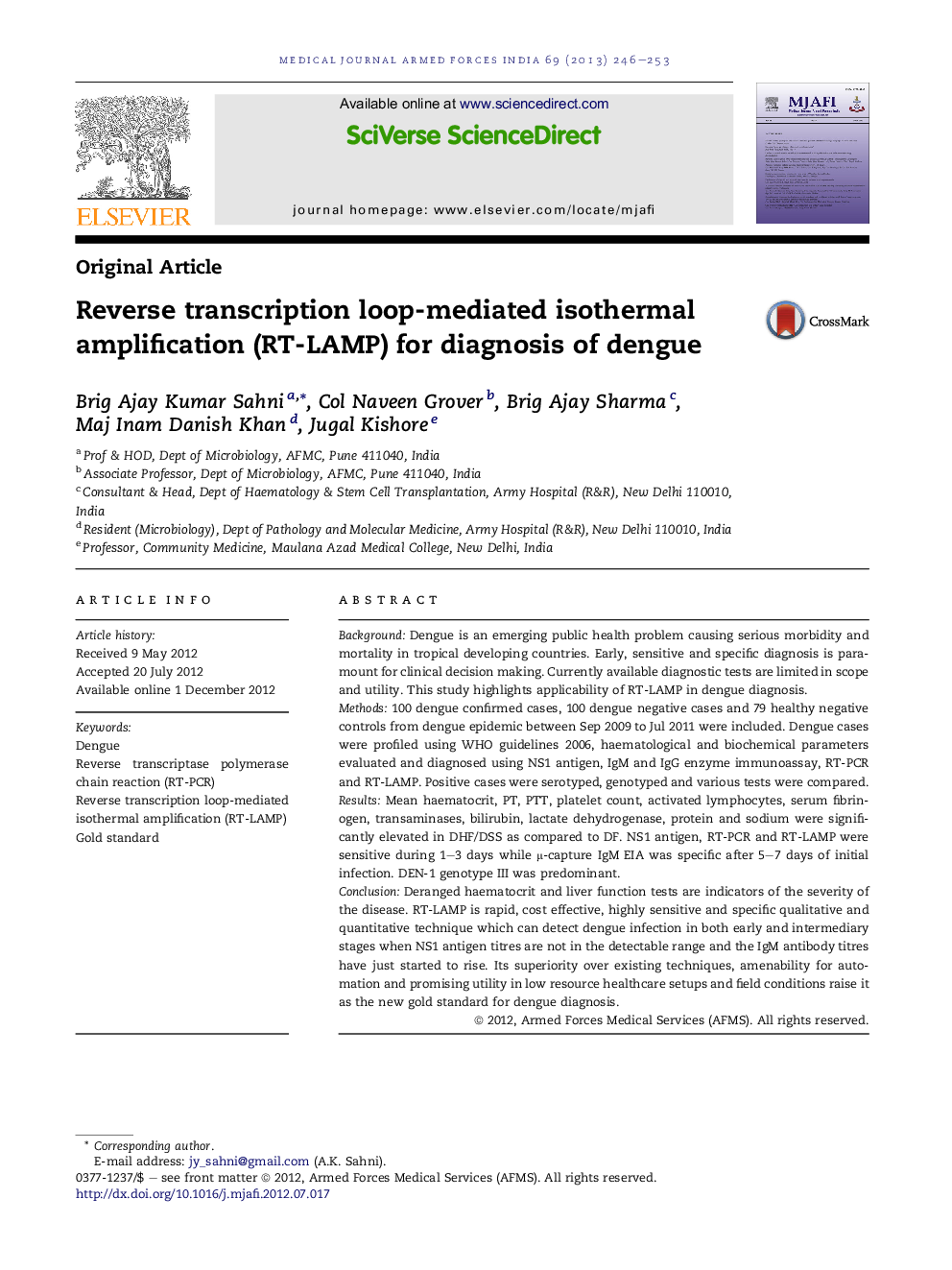| Article ID | Journal | Published Year | Pages | File Type |
|---|---|---|---|---|
| 3161779 | Medical Journal Armed Forces India | 2013 | 8 Pages |
BackgroundDengue is an emerging public health problem causing serious morbidity and mortality in tropical developing countries. Early, sensitive and specific diagnosis is paramount for clinical decision making. Currently available diagnostic tests are limited in scope and utility. This study highlights applicability of RT-LAMP in dengue diagnosis.Methods100 dengue confirmed cases, 100 dengue negative cases and 79 healthy negative controls from dengue epidemic between Sep 2009 to Jul 2011 were included. Dengue cases were profiled using WHO guidelines 2006, haematological and biochemical parameters evaluated and diagnosed using NS1 antigen, IgM and IgG enzyme immunoassay, RT-PCR and RT-LAMP. Positive cases were serotyped, genotyped and various tests were compared.ResultsMean haematocrit, PT, PTT, platelet count, activated lymphocytes, serum fibrinogen, transaminases, bilirubin, lactate dehydrogenase, protein and sodium were significantly elevated in DHF/DSS as compared to DF. NS1 antigen, RT-PCR and RT-LAMP were sensitive during 1–3 days while μ-capture IgM EIA was specific after 5–7 days of initial infection. DEN-1 genotype III was predominant.ConclusionDeranged haematocrit and liver function tests are indicators of the severity of the disease. RT-LAMP is rapid, cost effective, highly sensitive and specific qualitative and quantitative technique which can detect dengue infection in both early and intermediary stages when NS1 antigen titres are not in the detectable range and the IgM antibody titres have just started to rise. Its superiority over existing techniques, amenability for automation and promising utility in low resource healthcare setups and field conditions raise it as the new gold standard for dengue diagnosis.
